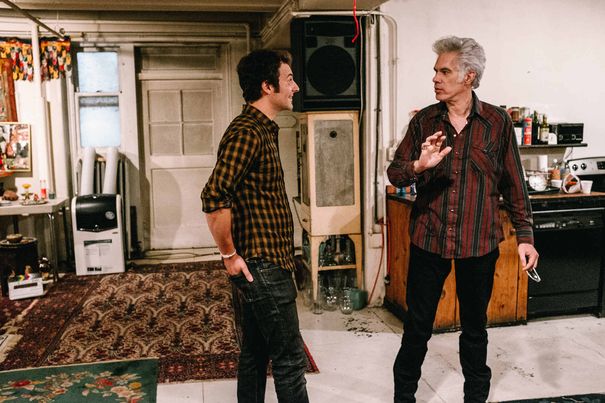The Man With A Movie Camera
Ruben Demasure of the 2016 Berlinale Talent Press reviews Aaron Brookner's Berlinale Panorama documentary UNCLE HOWARD.

Aaron Brookner's UNCLE HOWARD.
“Open your mind and let the pictures out,” was the adage of William S. Burroughs. In 1983, Howard Brookner realized the only film about and with the cult writer. His nephew, Aaron Brookner, discovered a lost print of BURROUGHS: THE MOVIE and crowdfunded its digital restoration (available on Criterion). Now, he made a documentary about the life and work of his “funny uncle” who always carried a camera. UNCLE HOWARD premiered in Sundance’s US documentary competition and is now showing in Berlinale’s Panorama section.
The film opens with Aaron gaining access to Burroughs’ Bowery bunker, which also served as a burial chamber for his uncle’s archive of outtakes footage and home movies after he fell victim to AIDS at the age of 34. It ends with a video diary in which Howard puts on The Pretenders’ “Hymn to Her” starting with the lines: “Let me inside you / Into your room.” Between the windowless bunker and that last intimate scene against a wide-open, exterior view on a Manhattan sunset, the filmmaker opens up the world of his childhood hero. Ultimately, we see Howard pass his video camera to the young Aaron and instruct him on how to watch through the viewfinder. The subject of many of his home movies now changed position to the other end of the looking glass.
In execution and form, the film is a fairly standard documentary. It chooses the worn-out format of the director as on-screen guide who more or less genuinely discovers stuff. A hand-held camera operator closely follows the filmmaker’s quest but is never acknowledged. The film truly thrives on the rich archival material, which is already fascinating in itself. The footage of Howard’s next projects was scarcer and is not as strong as the material on Burroughs. He went on to make ROBERT WILSON AND THE CIVIL WARS (1987) on the aborted project of the theatrical avant-gardist and a posthumously released Hollywood feature debut, BLOODHOUNDS OF BROADWAY (1989), starring Madonna, Matt Dillon and Rutger Hauer.
The carefully structured story is well supported by the music and soundscape and by associations between the footage and the new scenes. Although the filmmaker’s aim is to uncover the myth of his childhood hero, the interviews with his family and friends inevitably add to a “what if”-narrative of a tragic genius. UNCLE HOWARD nevertheless fills a missing page in a personal family album and the chronicles of New York’s counter-culture community.

